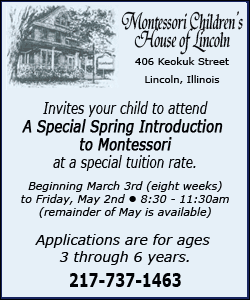|
 Voters across Russia say they are being urged, cajoled and pressured to vote in an effort to ensure that the Kremlin's candidate scores a big win in Sunday's presidential elections. Voters across Russia say they are being urged, cajoled and pressured to vote in an effort to ensure that the Kremlin's candidate scores a big win in Sunday's presidential elections.
Dmitry Medvedev, Russia's first deputy prime minister, is all but certain to win Sunday's presidential election by a broad margin. But authorities are still taking extraordinary steps to make sure he wins by a huge margin and with a high turnout, voters and rights groups say.
Compared to the December parliamentary campaign, which was marred by allegations of harassment and intimidation of opposition groups, the March 2 race has been calm, in part because there are no real opposition candidates in the race.
Sunday's ballot is widely viewed as a referendum on President Vladimir Putin's choice of a successor rather than an electoral contest. The outcome is so predictable, some critics say, that many of Medvedev's supporters may chose to stay home.

Since a low turnout could cast doubt on Medvedev's legitimacy, authorities seem determined to ensure that local voters show up to support the Kremlin's favorite candidate.
Putin on Friday urged Russians to vote, saying their support will be important for Russia's next president so he can be "effective and confident."
"The voice of each of you will be important in the March 2 vote," Putin said in a televised address.
Putin urged citizens to decide which of the four hopefuls can "as president, bring real good to millions of people, to all citizens of our great motherland."
The three other candidates in the race are Communist Gennady Zyuganov, ultranationalist Vladimir Zhirinovsky and Andrei Bogdanov, who poses as a liberal but is widely seen as just a Kremlin-backed contender.
In Moscow, many government-paid teachers and doctors said their bosses ordered them to vote in their schools and clinics
-- and told them to call to confirm that they had cast ballots.
Yelena, 45, who works at a state apartment-house maintenance office in southern Moscow, said her bosses demanded the right to cast ballots for both herself and her co-workers at polling stations where turnout was expected to be low on election day.

To do that, the bosses demanded that she submit a copy of her passport and her absentee ballot, which allows one to vote anywhere in Russia, Yelena said. The practice would be illegal since citizens must cast votes themselves.
"We were furious," said Yelena, who declined to give her last name out of fear of losing her job. "They are making sure that their candidate wins, and you cannot argue with your boss."
In a small town outside the Far Eastern city of Vladivostok teachers were instructed to call their bosses from polling stations to prove they had voted and urge parents to vote as well.
"The authorities have long stopped trying to convince people -- now it all boils down to the use of administrative pressure," said Vladislav Korolyov, a regional leader of the liberal SPS party in the Siberian city of Krasnoyarsk.
[to top of second column] |
 Korolyov claimed local authorities have warned private firms that if they do not ensure their employees vote in big numbers, they will face a tax fine. He also alleged college students were threatened with failing grades if they didn't vote.
Similar accounts from across the country were reported by the election monitoring group Golos.
Central Election Commission member Igor Borisov said it was perfectly legal for officials and activists to urge voters to turn out and denied allegations of official pressure. "As of today we have not registered such facts," Borisov said.
In the central Russian town of Dzerzhinsk, authorities plan to reward young voters with flyers to local discotheques. Other voters will be able to buy sugar, grain and canned fish at discounted prices at the polls, local authorities said.
In St. Petersburg, Russia's second largest city, some school teachers were promised a day off if they voted, a teacher said.
Meanwhile, numerous cell phone operators, including the country's two biggest Mobile Telesystems and Vympelcom, were sending their subscribers text messages asking them to vote and noting that "your vote is important for the country."

Anna Aibasheva, spokeswoman for Vympelcom said the request to send out the messages had initially come from the Kremlin and the Central Election Commission. The company liked the idea and adopted it as their own. She said the government did not offer money.
Some observers say the pressure to get out the vote may be coming from regional officials who want to demonstrate their loyalty, rather than federal officials. The Kremlin, they say, may not want Medvedev to surpass the turnout of 64 percent in the presidential contest of 2004, when Putin won re-election. Nor may federal authorities want Medvedev to earn more than the 71 percent Putin received in that contest.
Whatever the figures, the chief mystery of the election isn't who will win. It is how Medvedev will share power with Putin, who is expected to become his prime minister.
"The main intrigue will depend on something else -- on whether Medvedev will want to concentrate power in his hands," said Andrei Ryabov, a political analyst with the Carnegie Moscow Center.
[Associated
Press; By MARIA DANILOVA]
AP reporter Irina Titova in St. Petersburg contributed to this story.
Copyright 2008 The Associated
Press. All rights reserved. This material may not be published,
broadcast, rewritten or redistributed.
 |